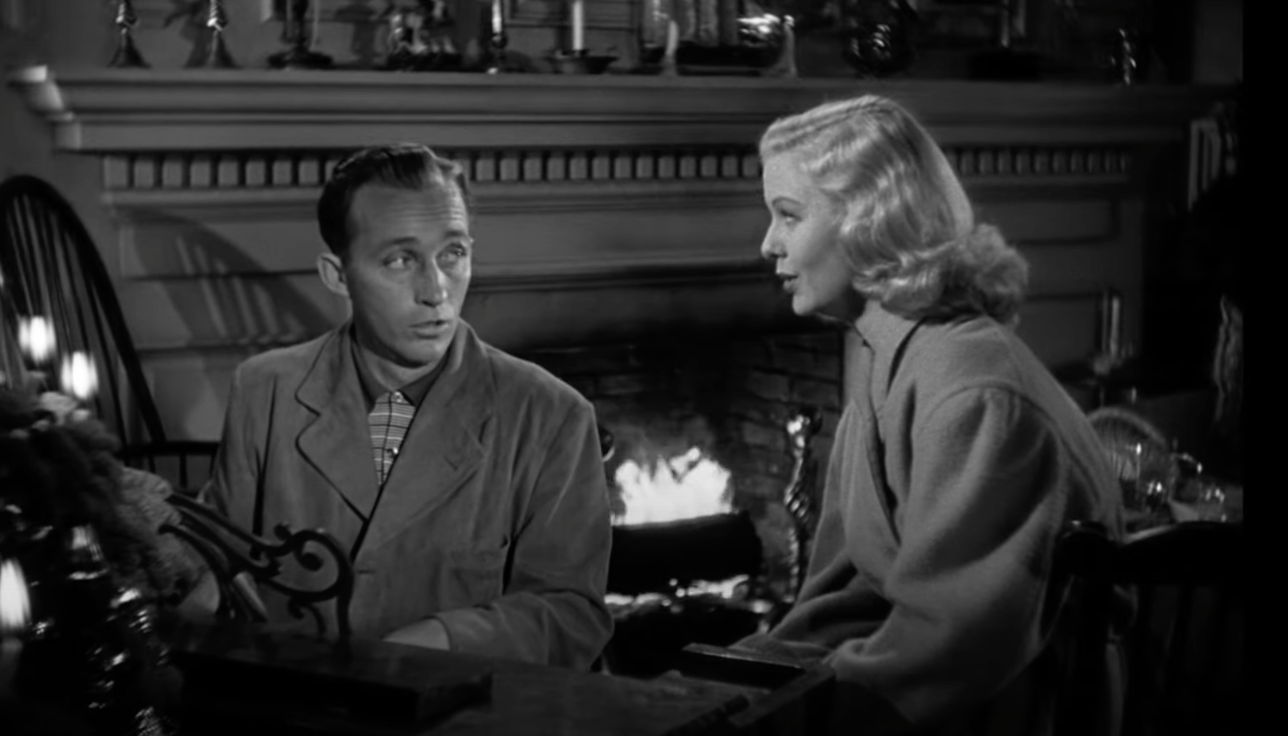“May your days be merry and bright, and may all your Christmases be white!” Bing Crosby’s rendition of “White Christmas” is still not only the most popular Christmas song of all time (judged by its 50 million copies sold) but it is the most popular song of all time. What is it that makes this song so special? Why does “White Christmas,” more than any other song, capture the essence of the most popular American holiday? Perhaps looking at the backstory can help us understand how a Christmas song written by a Jewish immigrant became the iconic tune we love today.
“White Christmas” was written by Irving Berlin for the 1942 movie Holiday Inn, and became so popular the 1954 movie White Christmas was named for the song. Both movies starred the singer who debuted the song, Bing Crosby. But “White Christmas” is so much more than a hit movie tune—it has come to be an integral part of Christmas for millions of Americans, from the 1940s up until our own day.
Irving Berlin seems at first glance an unlikely candidate for writing the most beloved Christmas song ever. He was a Russian-born Jew, but his wife was Catholic and he probably learned some love for the holiday from her. There is some debate about exactly where he really composed the song, but the Phoenix, Arizona Biltmore traditionally claims the honor.
According to the Biltmore, Berlin wrote the song while sitting beside the hotel pool. I happen to love a Green Christmas, but most people—including Berlin—wouldn’t agree, it seems. As he sat by the pool, Berlin suddenly had an inspiration. He is famously recorded as exclaiming to his secretary Helmy Kresa, “Grab your pen and take down this song. It’s the best song I ever wrote. Hell, it’s the best song anybody ever wrote!” And as the sales of “White Christmas” show, the world seems to agree heartily with Berlin.
While Berlin wrote the song for a movie, it was debuted by the movie’s star on radio. Bing Crosby first sang “White Christmas” on December 25, 1941. The most popular star of the time thus launched what quickly became the most popular song of all time. Even now, when people have largely forgotten the megastar Crosby, almost everyone has heard him sing “White Christmas” as only he can.
Some people have noted that “White Christmas” has a wistful, almost sad undertone. To a certain extent that’s true; but the whole magic of “White Christmas” is that is takes people’s sadness and turns it into something both comforting and bitter-sweet. Irving Berlin’s baby son had died on Christmas. As said above, Bing Crosby’s first performance of the song was on his radio show the Kraft Music Hall (sponsored by the famous cheese company) on December 25, 1941–only a few weeks after the devastating attack by the Japanese on Pearl Harbor, Hawaii, which launched America into the bloody World War II. Crosby, whose wild popularity and constant tours to entertain troops during the war caused him to be dubbed the “Voice of America”, later said that he sometimes hesitated about performing “White Christmas” to troops, fearing it would make them sad. The troops didn’t agree.
“Heaven knows, I didn’t come that far to make them sad,” Crosby explained in an interview. “For this reason, several times I tried to cut it out of the show, but these guys just hollered for it.” His performance of the song to troops became so iconic that when he starred in the 1954 movie named after the song, the opening scene of the movie showed Crosby entertaining soldiers in a war zone with “White Christmas.”
The truth was, the very pathos of the song made it more charming. I think we can say that the song helped Irving Berlin deal with the grief of his son’s loss (his comment that it was the best song he ever wrote indicates that truth), and the song helped America cope with the horrors of WWII. The song reminded soldiers and family at home of loved ones far away, of a better time and place, and blended the longing and sorrow of the present with hope for the future. The song starts with regret but ends with a wish for and belief in future joy.
“White Christmas” was the song America needed.
As you listen to this Christmas classic, remember the history of “White Christmas”—it was the song that brought America through war and stayed in Americans’ hearts during peace.




2 Responses